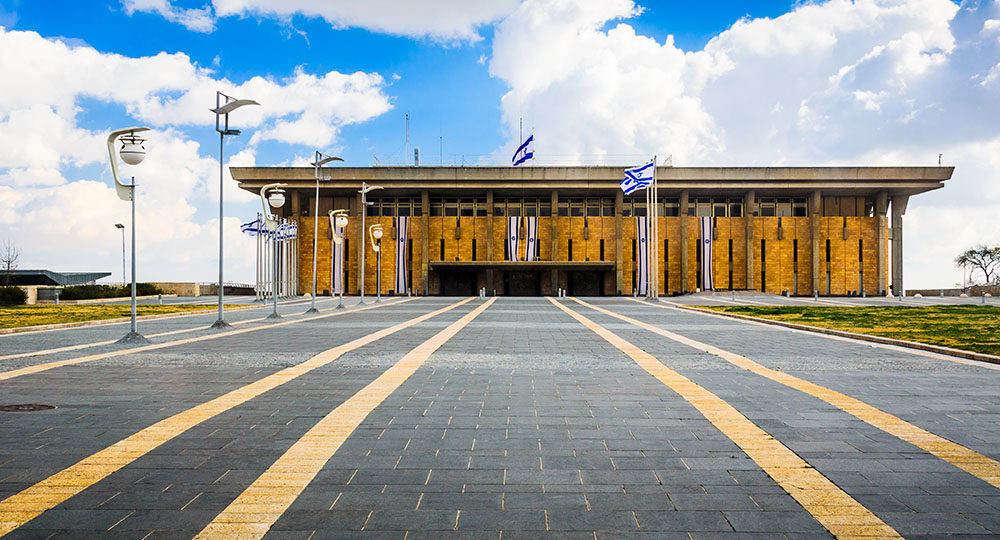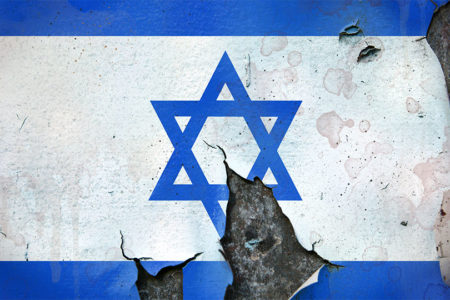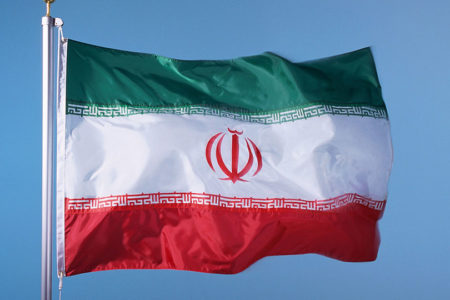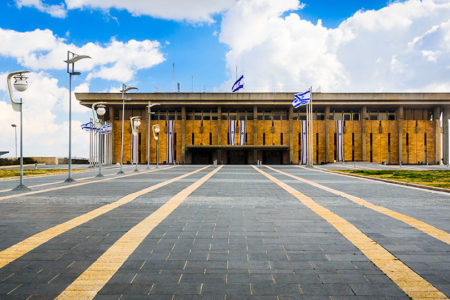Israel At 50: Its Chaotic Political System
Israel is a thriving democracy in the heart of the mainly Muslim Middle East. The Jewish state is the only full and stable democracy in the region, although a few other countries are attempting to move in that direction. However, Israel’s rambunctious political scene is often described as something akin to “democratic chaos.”
Much of Israel’s legal system was inherited from the Turkish Ottoman Empire and Great Britain, the last two powers to control the Holy Land before a Jewish state reemerged 50 years ago. Although there is no formal constitution, a series of Basic Laws has been passed over the years that function as the bedrock legislation of the modern state.
They can be altered only by a two-thirds legislative vote.
All laws are enacted by the Knesset, Israel’s parliament. Its 120 legislators are chosen by private ballot every four years, although elections can be held at any time if a majority of Knesset members take a vote of no confidence in the sitting government.
Israel’s democratic form of government is based on several international models. Its parliamentary system most closely reflects those found throughout Western Europe. Israel’s legislative assembly is the seat of ultimate political power. The executive branch of government, headed by the prime minister, is always formed out of the Knesset.
As in the United States, the Israeli Supreme Court acts as a balance check on the Knesset and the executive branch. Justices, who are voted into office by the Knesset, often rule on the legality and fairness of various laws and government actions. A nationwide system of religious courts, dating back to Ottoman times, possesses the only power to grant marriage licenses or hear divorce cases.
Israel’s electoral system is based on proportional representation—that is, Knesset members are elected from the country as a whole, instead of from a specific region, as in the United States and Britain. Israeli voters do not choose a particular man or woman to represent them, but an entire political party. The various parties select their lists of Knesset candidates before each general election.
Unlike the United States, Israeli governments are always comprised of politicians from a coalition of parties. Until 1996, they were formed after the president—a largely ceremonial position in Israel—appointed a candidate to put together a governing coalition of at least 61 Knesset members. The candidate chosen was normally the leader of the largest political party in the Knesset, and he usually emerged as prime minister. A cabinet was then assembled from among leading members of the various parties in the coalition.
“Various parties” is a good summary description of Israel’s spirited democratic system. Proportional representation means that virtually any political grouping of more than two percent of the voting public can send a representative to the Knesset. This has led to the formation of dozens of parties over the years. At least ten parties, including religious and Arab parties, usually win election to the Knesset. Every national election sees the creation—and usually the disappearance—of several political parties, adding color, but also confusion, to the Israeli political scene.
The Labor party governed Israel with its coalition allies from 1948 to 1977. The entrenched ruling party was better known as the Alignment, since it was actually a coalition of various political movements that shared socialist roots and ideology. Labor’s power base has always been the kibbutz collective farms located throughout the country.
However, as Israel became more urbanized, and following a series of Labor government scandals, the main opposition party came to power in 1977. Under the leadership of fiery orator Menachem Begin, the conservative Likud party joined forces with various religious, centrist, right-wing, and free enterprise parties to form a new government.
Israel’s political scene has resembled a roller coaster ride ever since the Likud party—itself a combination of various nationalist and conservative movements—took over the reins of government. Political control has seesawed between Labor and Likud ever since, with several small Orthodox religious parties usually holding, and deftly wielding, the balance of power.
It was only by forming a coalition with Labor party rebel Moshe Dayan that Prime Minister Begin was able to put together his first government. With the Six–Day War hero as his foreign minister, the Likud leader surprised the world in 1978 by negotiating a peace accord with Egypt’s Anwar Sadat. The stunning move boosted Begin’s local and international standing, along with the future fortunes of his nationalistic party. He went on to capture even more seats in the 1981 election, allowing his Likud party to weld together Israel’s first entirely right-wing coalition government.
The controversial war in Lebanon led to Begin’s premature resignation in 1983. He was succeeded by the relatively drab Yitzhak Shamir, who lost Knesset seats to Labor, headed by Shimon Peres, in the 1984 election. After two months of trying, neither veteran politician was able to form a viable coalition government. Peres eventually glued together a very unhappy unity government in which both he and Shamir served two-year stints as premier.
The forced political marriage between the two major parties, who traditionally receive most of their votes from Israel’s secular majority, marginalized the power of the various small parties, especially the religious ones. Many Israelis saw this as the only positive feature of the often acrimonious unity government arrangement, which lasted through two more elections, until 1990.
By then, Israel’s increasingly chaotic electoral system was under widespread attack. Disgusted with the shameless extortion exhibited by some small parties, many politicians joined growing numbers of academic and business leaders in demanding electoral reform.
Many suggested that the proportional electoral system be scrapped in favor of direct representation. Others proposed raising the percentage of overall votes needed to enter the Knesset. In the end, the reform talk came to nothing. The major parties were afraid of alienating the eleven small ones, which, together, held almost half the seats in the Knesset. All hopes for electoral reform died when Labor prematurely quit the unity coalition in 1990, leaving Shamir in charge of a right-wing patchwork government.
The revival of the American-sponsored peace process after the 1991 Gulf War led to the formation of several new right-wing parties. The cacophony of nationalistic groups splintered the majority conservative vote in the 1992 election, with several right-wing parties failing by small margins to make it into the Knesset. This led to an outright victory for the left-wing block, headed by charismatic Labor leader Yitzhak Rabin.
A hotly debated electoral reform law was passed by the Knesset just before the June vote. The legislation mandated that following the 1992 elections, all future prime ministers would be voted into office by direct popular election. However, the proportional Knesset system favored by the smaller parties would remain unchanged. Thus, instead of simply picking one political party, voters would cast separate ballots—one for their favorite party and another for a candidate for prime minister.
The bill also altered the way future governments could be prematurely toppled from power. An absolute Knesset majority of 61 votes would be needed to force early elections. Under the old system, a bare majority of representatives present in the Knesset chamber during a no-confidence vote could oust the government. This added to the inordinate power wielded by small coalition parties and often produced cliff-hanger votes that undermined government stability.
The electoral reform law was strongly backed by Rabin, who saw to it that most of his Labor subordinates supported it. Many Knesset members opposed the bill, including all but seven Likud representatives. Among the naysayers were Peres and Shamir, who suspected that Rabin’s enthusiastic support was meant to guarantee his own reelection in 1996.
Noting that such a hybrid parliamentary system does not exist anywhere else on earth, opponents of the bill said the direct election of a prime minister would concentrate too much power in the hands of one person. They added that the Knesset, and even the cabinet, would be marginalized under the reform legislation. Many analysts agreed with their assessment, with one warning that the proposed change could lead to “the election of a person with dictatorial ambitions.”
Yitzhak Rabin did not get the opportunity to seek reelection in 1996. For the first time ever, an assassin’s bullet cut down an Israeli leader, tearing a hole in the country’s democratic system. However, Rabin’s successor, Shimon Peres, seemed happy that his slain colleague had forced through the electoral change in 1992, since opinion polls predicted the new Labor leader would easily win the May 1996 contest.
The election results shocked Peres, who lost Israel’s first ever direct vote to opposition leader Binyamin Netanyahu. Ironically, the victor was one of the seven Likud representatives who had cast their ballots in favor of the electoral reform legislation.
But Netanyahu’s unexpected narrow triumph—which came in the wake of a series of hideous Palestinian suicide terror attacks that battered Israel’s main cities—was bittersweet at best. The reform legislation did not strengthen the two main parties, as most analysts and politicians expected. Instead, it freed voters to choose their preferred major party leader while casting their Knesset ballots for whichever small party most closely reflected their own ideological beliefs.
Together, Likud and Labor captured less than half of the Knesset’s 120 seats. This was an unforeseen disaster for the large parties. Even more embarrassing, Netanyahu’s Likud party won only 22 Knesset seats, meaning he would have to patch together a 61-majority coalition with many other parties. The ghost of political chaos was haunting Israel once again!
Netanyahu’s coalition negotiations were as extortionist, acrimonious, and time-consuming as they had ever been before the so-called “reform” legislation was enacted. This prompted calls for a revision or cancellation of the 1992 law.
The Likud leader eventually succeeded in piecing together a majority coalition, but at a high cost. It included no less than three religious parties: Natan Sharansky’s new Yisrael b’Aliya immigrant party, David Levy’s five-man Gesher faction, the centrist Tzomet party, along with the Labor breakaway Third Way party. But the solid 66-member government was reduced to a bare 61 majority when Foreign Minister Levy resigned on the first day of 1998, taking his faction with him. The move came after two of Netanyahu’s internal Likud rivals resigned from his cabinet and announced they might vote to topple the prime minister in future no-confidence motions. Sensing opportunity, several small coalition partners threatened to quit the government after Levy’s exit. The mere hint of departure kept Netanyahu busy trying to repair the cracks in his patchwork coalition.
Indeed, the political scene exactly mirrored the dark days before electoral reform was enacted! Nothing was new under the hot Mideast sun.







